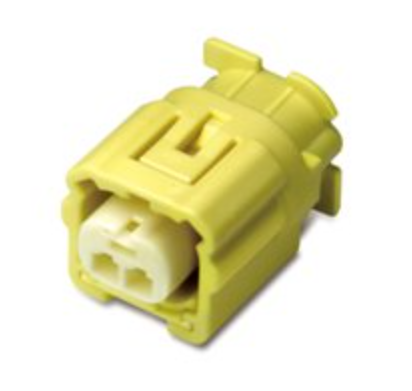Wiring connectors are vital components in electrical and electronic systems, providing secure and reliable connections between various electrical circuits. These connectors ensure safe and efficient transmission of electrical signals and power, playing a crucial role in everything from home wiring to complex industrial applications.

Choosing the right type of wiring connector is essential for ensuring electrical safety and system performance. Here are some of the most common types:
Butt connectors are used to connect or terminate electrical wires by crimping the connector onto the wire ends. They are ideal for automotive and marine applications due to their reliability and ease of use.
These connectors feature a loop (ring) or fork (spade) that fits over a screw or stud. They are commonly used in household wiring and electrical panels for their secure connections and easy installation.
Twist-on connectors, also known as wire nuts, are used to join multiple wires by twisting the connector over the wire ends. They are widely used in residential wiring due to their simplicity and effectiveness.
Quick disconnects allow for fast and easy connection and disconnection of wires. They are typically used in appliances, automotive, and electronic applications where frequent disconnection is required.
Crimp-on connectors are used to terminate wires by crimping the connector onto the wire using a crimping tool. They provide a secure and permanent connection, making them ideal for high-vibration environments.
The materials and construction of wiring connectors play a significant role in their durability and performance. Common materials include:
Copper is the preferred material for many connectors due to its excellent conductivity and corrosion resistance. It is widely used in residential, automotive, and industrial applications.
Brass connectors offer good conductivity and mechanical strength. They are often used in electronic and electrical applications where durability is essential.
Aluminum connectors are lightweight and provide good conductivity. They are commonly used in power distribution and industrial applications.
Many connectors feature plastic insulation to protect against electrical shocks and short circuits. Common insulation materials include PVC, nylon, and polyolefin.
Selecting the appropriate wiring connector depends on several factors, including:
Consider the specific application and environmental conditions. For example, automotive connectors need to withstand vibration and extreme temperatures, while marine connectors must be corrosion-resistant.
Ensure the connector is compatible with the wire size and type. Using the wrong size can lead to poor connections and potential safety hazards.
The connector must be rated for the electrical load it will carry. Using an under-rated connector can cause overheating and failure.
Choose a connector that fits your installation method and tools. For example, crimp-on connectors require a crimping tool, while twist-on connectors need no special tools.
Proper installation of wiring connectors is crucial for ensuring safety and reliability. Here are some tips:
Always follow the manufacturer’s guidelines for installation and usage. This ensures the connectors perform as intended and meet safety standards.
Using the correct tools for installation is essential. For example, use a crimping tool for crimp-on connectors and a screwdriver for ring terminals.
Ensure all connections are secure and free from loose wires. Loose connections can cause electrical faults and potential fire hazards.
Regularly inspect connectors for signs of damage or wear. Replace any damaged connectors immediately to maintain electrical safety.
In addition to the basic types, there are advanced connectors designed for specific applications:
Waterproof connectors are used in environments exposed to moisture and water, such as marine and outdoor applications. They feature seals and gaskets to prevent water ingress.
High-temperature connectors are designed to withstand extreme heat. They are commonly used in industrial and automotive applications where high temperatures are prevalent.
These connectors are used in applications where electromagnetic interference (EMI) and radio frequency interference (RFI) are concerns. They feature shielding to protect against electrical noise.
Wiring connectors are essential components in ensuring safe and reliable electrical connections. By understanding the different types, materials, and installation methods, you can choose the right connectors for your application and ensure optimal performance. Always follow best practices for installation and regularly inspect connectors to maintain safety.
Find every kind of automotive electrical connector for every kind of environment at Suntex. We carry quality brands such as MOLEX connectors, JST, TE, and KET wire connectors. Our complete line includes twist-on, push-in, grounding, crimp, and tap wire connectors, among others. The Suntex line is designed to provide safe, dependable solutions for every application. Whether it’s commercial, residential, or industrial, Suntex has the connector that’s right for every job.

Comments
0